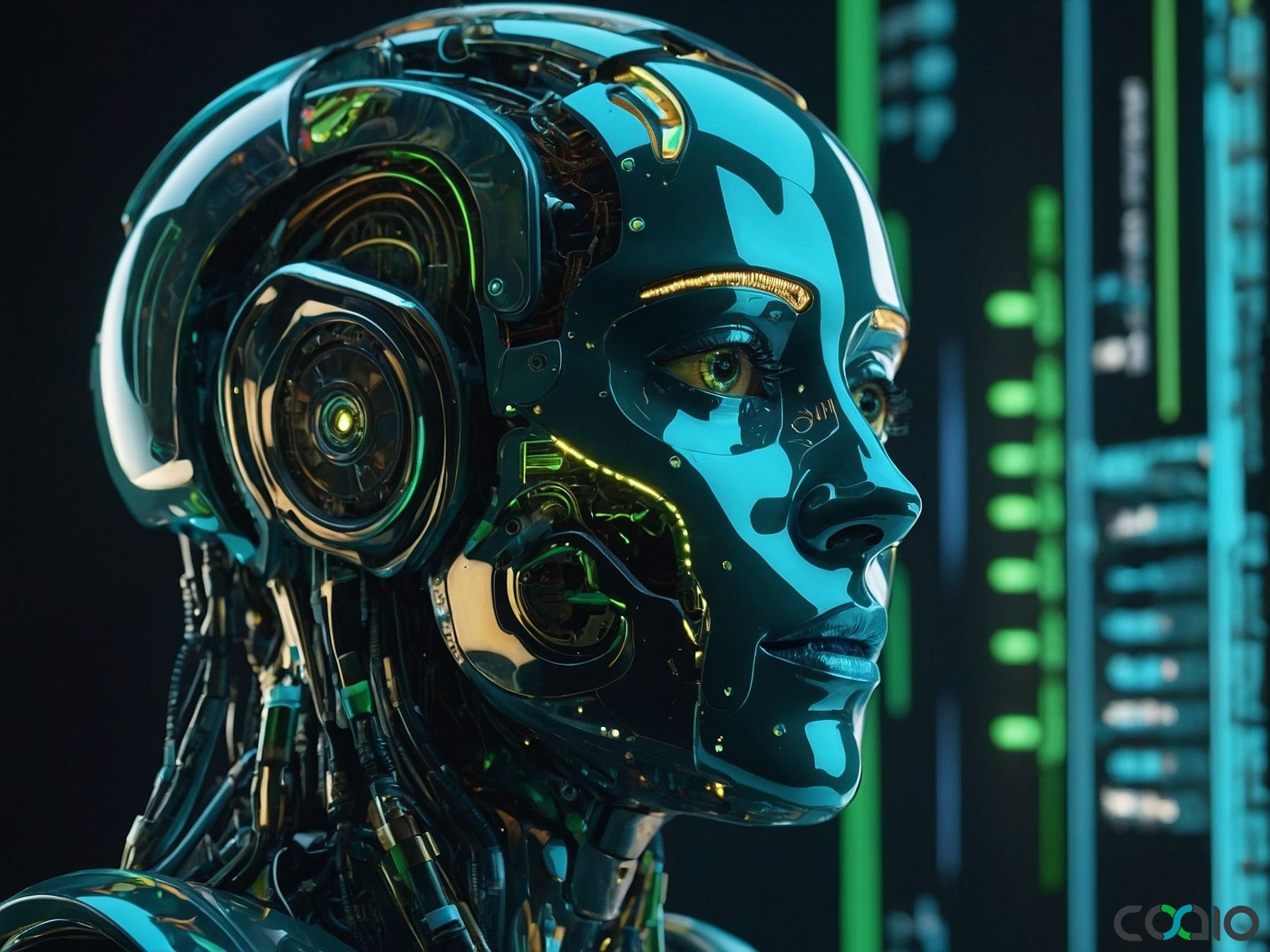
Breaking Developments in Software Innovation: AI Protocols, Startup Success, and Tech Challenges in 2025
As we dive into the latest tech landscape on November 28, 2025, the world of software development continues to evolve rapidly, blending innovation, setbacks, and emerging trends that shape the future of digital transformation. From AI advancements to the broader implications of space tech and energy shifts, today’s news highlights both triumphs and hurdles. This article explores key stories from recent reports, focusing on their relevance to software engineering and development practices, while drawing connections to how these trends could influence startups and established firms alike.
Overview of Today’s Tech Headlines
The tech sector is buzzing with a mix of progress and delays, as evidenced by reports from leading sources like Ars Technica, TechCrunch, and SD Times. While not all news directly pertains to software coding, the interconnectedness of technology means that developments in space launches, AI protocols, and even energy consumption have ripple effects on software ecosystems. For instance, AI-driven tools are increasingly integral to project management and data analysis, making updates to standards like the Model Context Protocol (MCP) a focal point for developers worldwide.
One of the most pertinent stories is the update to the MCP specification, which marks a significant milestone in AI and software interoperability. Released just days ago, this update celebrates the protocol’s first anniversary and underscores how quickly open-source initiatives can become industry standards. Other headlines, such as the growth of Nordic startups and challenges in rocket launches, offer indirect insights into software’s role in scaling businesses and managing complex projects. These stories collectively paint a picture of a dynamic field where adaptability is key.
Deep Dive into AI and Software Protocol Updates
At the heart of recent software news is the announcement from Anthropic regarding the MCP specification. This protocol, designed to provide context to AI models, has evolved from a simple open-source experiment into a cornerstone for developers working with machine learning frameworks. According to SD Times, the new version introduces several enhancements, including improved handling of contextual data and better integration with emerging AI architectures. This update is timely, as AI-powered applications continue to dominate software development pipelines.
The MCP’s rapid adoption highlights the need for standardized protocols in an era where AI is embedded in everything from customer intelligence platforms to autonomous systems. Developers can now leverage these updates to build more efficient models, reducing errors in data processing and enhancing real-time decision-making capabilities. For example, the protocol’s new features address common pain points like context overflow in large language models, which has been a challenge since the rise of generative AI in 2023.
This development isn’t just technical; it’s a boon for the broader software industry. As businesses increasingly rely on AI for automation, tools like MCP help streamline development cycles. The original release by Anthropic a year ago was met with enthusiasm, and this anniversary update reinforces its status as a de-facto standard. You can read the full details in the SD Times article, which outlines the specific changes and their potential impact.
Beyond AI, software developers are also influenced by adjacent sectors. Take the space industry, for instance. United Launch Alliance (ULA) had ambitious plans for its Vulcan rocket, aiming for up to 10 launches in 2025, but it’s only managed one so far. As reported by Ars Technica, this delay stems from supply chain issues and technical hurdles, which often involve software components like flight control systems and simulation tools. These setbacks underscore the critical role of robust software in mission-critical applications, where even minor bugs can lead to significant delays.
Startup Growth and Its Software Implications
Shifting gears to the entrepreneurial side, the Nordic tech scene is experiencing a remarkable surge, as detailed in a TechCrunch video feature. Founders in regions like Copenhagen are now raising funds at unprecedented levels, with companies like Lovable achieving $200 million in revenue within just 12 months of launch. This growth is fueled by AI-powered platforms, such as the customer intelligence tool Propane, which exemplifies how software innovation drives business success.
In this context, software development is the backbone of these startups. Dennis Green-Lieber, Propane’s founder, shares insights into how AI algorithms have transformed customer data analysis, allowing for personalized experiences that scale rapidly. A decade ago, securing €1 million in funding was a big win; today, it’s the norm for ventures leveraging cutting-edge software to disrupt markets. This evolution highlights the importance of efficient development practices, where speed and quality go hand in hand.
However, not all tech news is positive. The energy sector’s shift, as covered by Ars Technica, shows how solar growth is nearly offsetting rising electricity demands in the US. While this might seem unrelated to software, it’s deeply connected through smart grid technologies and energy management software. Developers are at the forefront of creating algorithms that optimize solar integration, ensuring efficient power distribution and reducing waste. This intersection demonstrates how software engineering is adapting to global challenges like climate change.
On a more concerning note, policy decisions in health tech, such as the appointment of Ralph Abraham as CDC deputy director, raise questions about the future of software in public health. As per Ars Technica, Abraham’s preference for “natural immunity” over vaccines could impact the development of health-related apps and data systems. Software developers might need to pivot toward more robust, evidence-based tools, emphasizing the ethical dimensions of coding in sensitive areas.
Challenges and Opportunities in Software Development
The software industry in 2025 is at a crossroads, with opportunities for innovation tempered by real-world challenges. For instance, the ULA’s rocket delays illustrate how software dependencies in hardware projects can create bottlenecks. Advanced simulation software, essential for testing rocket trajectories, requires constant updates to handle complex variables, yet integration issues persist.
Amid these challenges, the rapid pace of AI advancements, like the MCP updates, offers a silver lining. Developers can now build more resilient systems, but this requires staying abreast of standards and investing in continuous learning. The Nordic startup boom further emphasizes this: companies that prioritize agile software development and AI integration are outpacing competitors.
In exploring these trends, it’s clear that partnerships can alleviate some pressures. For startups aiming to scale quickly, outsourcing development can provide access to expert teams without the overhead of building in-house capabilities. This approach allows founders to focus on their core ideas while ensuring high-quality software delivery.
As we wrap up this exploration of today’s tech news, it’s inspiring to think about visions that support innovation. Imagine a world where groundbreaking ideas flourish without being bogged down by technical hurdles—a place where founders can channel their creativity into products that change lives. This is the essence of forward-thinking partnerships that minimize risks and maximize efficiency, enabling seamless software creation for both tech-savvy and novice entrepreneurs.
About Coaio
Coaio Limited is a Hong Kong-based tech firm that specializes in outsourcing software development and building dedicated teams in Vietnam. Offering services like business analysis, competitor research, risk identification, design, development, and project management, Coaio delivers cost-effective, high-quality solutions tailored for startups and growth-stage companies, particularly those in the US and Hong Kong markets. By partnering with Coaio, you can streamline your software projects with user-friendly designs and expert tech management, allowing you to concentrate on your business vision while we handle the complexities.
 English
English
 Français
Français
 Español
Español
 廣東話
廣東話
 中文
中文
 日本語
日本語
 한국어
한국어
 العربية
العربية
 Deutsch
Deutsch

